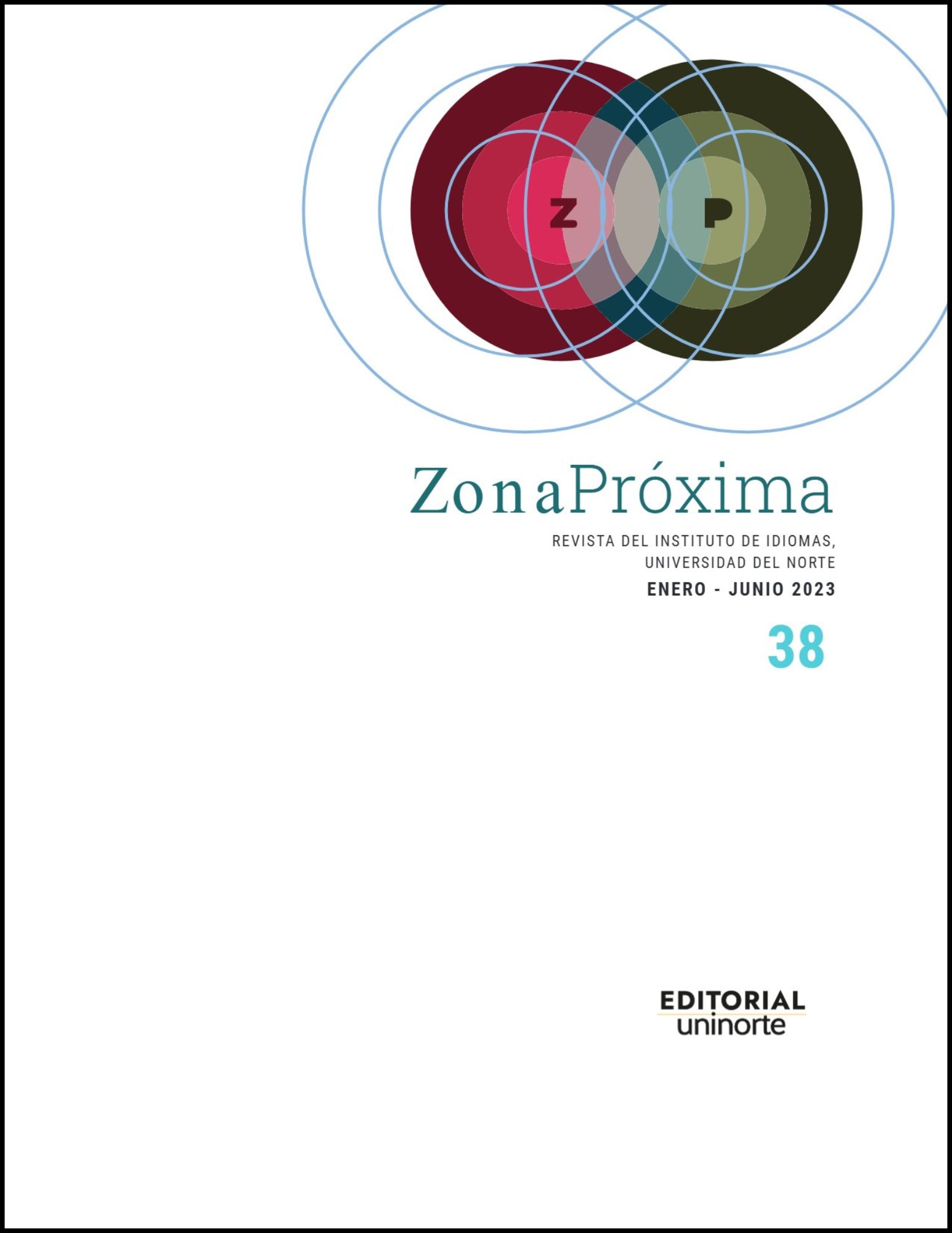Abstract
One of the missions of Higher Education Institutions is the integral human formation of their students. The objective of this descriptive and non-experimental research work is to evaluate the validation and reliability of the content of an information collection instrument intended for undergraduate students of an HEI, in order to measure their social, emotional, and intercultural competencies (SEI), as developed from the contribution of the curricular internationalization strategies offered by the institution. 13 experts on the subject participated in the evaluation of the instrument. The result was a content validity ratio (CVR) in the range of 0.23 to 1, with a content validity index (CVI) of 0.92, which, by exceeding the minimum cut-off point of 0.54, shows that the evaluated measuring instrument is acceptable; furthermore, an average Cron- bach’s Alpha index of 0.81 shows that the evaluated instrument fits the research objectives.
References
Álvarez-Gayou, J. L. (2014). Cómo hacer investigación cualitativa. Fundamentos y metodología. México: Paidós Educador.
Boyatzis, R., Stubbs, E. y Taylor Scott, N. (2002). Learning Cognitive and Emotional Intelligence. Competencies Through Graduate Management Education. Academy of Management Learning and Education, 1 (2), 150-162.
Coelho, V., Romao, A., Ribeiro, P. y Saldanha, S. (2021). A nationwide analysis of the effectiveness of a Social and Emotional Learning program in Portugal: Focus on the role of develop- ers’ involvement. Revista de Psicodidáctica, 26 (2), 2530-3805. https://doi.org/10.1016/j.psicoe.2021.04.001.
CASEL Collaborative for Academic, Social, and Emotional Learning (2018). Competencias del aprendizaje social y emocional (SEL). https://casel.org/wp-content/uploads/2019/12/CASEL-whe- el-competencies-Spanish.pdf
Corcoran, R., O’Flaherty, J., Xie, C. y Cheung, A. (2020). Conceptualizing and measuring social and emotional learning: A systematic review and meta-analysis of moral reasoning and academic achievement, religiosity, political orientation, personality, Educational Research Review, 30. https://doi.org/10.1016/j.edurev.2019.100285
Deardorff, D. K. (2006). Identification and assessment of intercultural competence as a student outcome of internationalization. Journal of Studies in International Education, 10(3), 241-266. https://doi.org/10.1177/1028315306287002.
Eyzaguirre, S., Le Foulon, C. y Salvatierra, V. (2020). Educación en tiempos de pandemia: Antecedentes y recomendaciones para la discusión en Chile. Estudios Públicos, 159, 111-180. https://doi. org/10.38178/07183089/1430200722
Gacel-Ávila, J. (2017). Ciudadanía Global: Concepto emergente y polémico. ESS: Educación Superior y Sociedad, 21(Colección 25o aniversario), 39-63. https://www.iesalc.unesco.org/ess/index.php/ ess3/issue/view/4
García, B. (2009). Manual de métodos de investigación para las ciencias sociales. Un enfoque de enseñanza basado en proyectos. México: Manual Moderno
García, M. J. (2017). Las competencias emocionales de los trabajadores cubanos. ¿cómo medirlas? Alternativas cubanas en psicología, 5(13). http://www.alfepsi.org/wp-content/uploads/2017/01/ alternativas-cubanas-en-psicologia-v5n13.pdf
Goleman, D. (1996). Inteligencia emocional. Barcelona: Kairós.
Goleman, D., Boyatzis, R. y McKee, A. (2002). El líder resonante crea más: el poder de la Inteligencia Emocional. Plaza y Editores.
Hernández, R. y Mendoza, C. (2018). Metodología de la investigación: Las rutas cuantitativa, cualitativa y mixta. México DF: McGraw-Hill.
Hernández, R. y Mendoza, C. (2018). Metodología de la investigación: Las rutas cuantitativa, cualitativa y mixta. México DF: McGraw-Hill.
Lawshe, C. H. (1975). A quantitative approach to content validity. Personnel Psychology, 28(4), 563-575.
Medina, R. (2020). Validez de Contenido de un Instrumento de Medición de Derechos Humanos en México. Revista de Ciencias Sociales (Cr), II(168), 2. https://www.redalyc.org/articulo. oa?id=15364525014
Mikulic, I., Crespi, M. y Radusky, P. (2015). Construcción y validación del inventario de Competencias Sociemocionales para adultos (ICSE). Interdisciplinaria, 32(2), 307-330. http://www. redalyc.org/articulo.oa?id=18043528007
Muller, F., Denk, A., Lubaway, E., Salzer, C., Kozina, A., Vrsnik, T., Rasmusson, M., Jugovic, I., Lung Nielsen, B., Rozman, M., Ojstersek, A. y Jurko, S. (2020). Assessing social, emotional, and intercultural competences of students and school staff: A systematic literature review. Educational Research Review, 29. https://doi.org/10.1016/j.edurev.2019.100304
Sousa, C., Gonçalves, G., Orgambídez, A. y Santos Joana. (2015). Questionário de Personalidade Multicultural: Características métricas da adaptação para a população portuguesa e correlações com a inteligência cultural. Revista portuguesa de psicologia, 43, 31-47.





